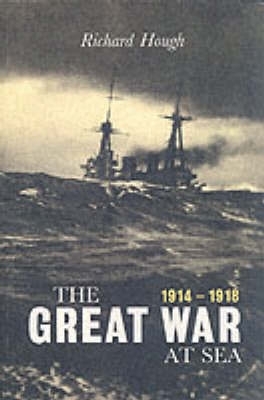Oxford Paperbacks
1 total work
While the bloody stalemates of Verdum and the Somme have attracted most attention, it was the war at sea that decided the fate of the German Empire at the end of the First World War. Slowly strangled by economic blockade, Germany in 1918 was a spent and beaten power. It was the attempts of the Central Powers to break the crippling blockade which dictated almost every element of their strategy, from the U-Boat war which in the end brought America in to the conflict, through the titanic battle of Jutland, to Ludendorff's final despairing effort on the Western Front. But the naval war went beyond even that in terms of importance. To both Germany and Britain their fleets were a symbol of status and power; to both countries their fleets were at the cutting edge of technology. If the brutal slaughter of the trenches was the last gasp of 19th century warfare, the war at seas was a portent of things to come. Driven by a great arms race, fuelled by science, the great battleships on the Grand Fleet and the High Seas Fleet represented total war in a way never before seen.
Yet beside the grandeur and menace of these leviathans is the drama and excitement of numerous extraordinary stories of individual heroism and adventure. From von Spee's legendary cruiser squadron, through the escape of the Goeben; from the cruise of the Emden to Gallipoli and Jutland, this is the story of the great struggle which decided the war.
Yet beside the grandeur and menace of these leviathans is the drama and excitement of numerous extraordinary stories of individual heroism and adventure. From von Spee's legendary cruiser squadron, through the escape of the Goeben; from the cruise of the Emden to Gallipoli and Jutland, this is the story of the great struggle which decided the war.
